Syria war: Assault on rebel stronghold of Idlib 'displaces 100,000'
- Published
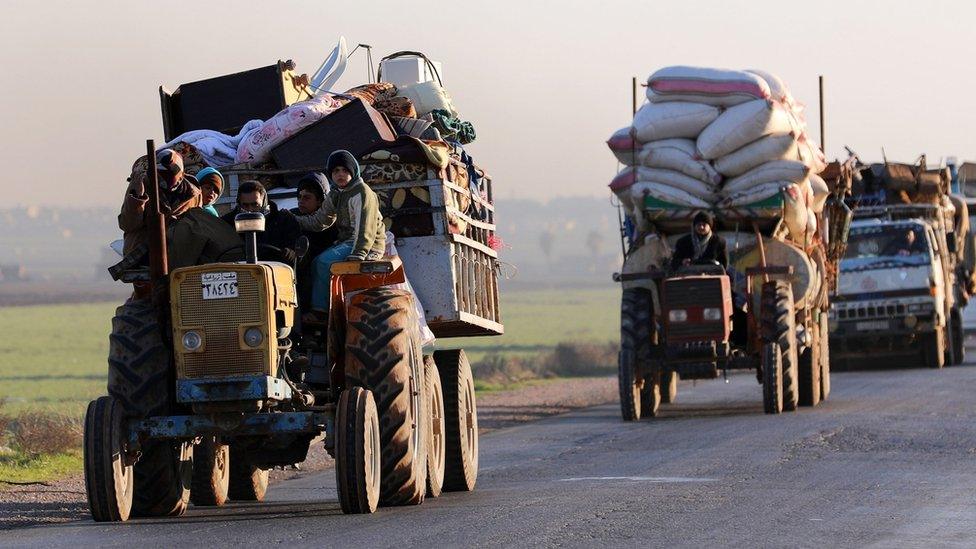
Fighting in south-eastern areas of Idlib province has forced civilians from their homes
Some 100,000 Syrian civilians have been displaced by a government offensive on the country's largest remaining rebel stronghold, the United Nations says.
Since the start of November, fighting and air strikes have intensified in the north-western province of Idlib and neighbouring parts of Hama and Aleppo.
The UN says the situation for those forced from their homes is "dire".
Turkey, which backs the rebels, has called on the government's allies, Russia and Iran, to halt the offensive.
Idlib was designated a "de-escalation zone" under an agreement between the three countries, and Turkish troops are deployed to observation points in the province.
Some 2.65 million people are living in north-western Syria, including 1.16 million internally displaced people (IDPs), according to the UN.

In the past year, more than 500,000 people have arrived in rebel-held areas from other parts of the country, leaving already-stretched humanitarian organisations struggling to help those in need.
The escalation in fighting between pro-government forces and rebels led by Hayat Tahrir al-Sham, an al-Qaeda-linked jihadist alliance that dominates Idlib, has caused civilian casualties, damaged infrastructure and led to mass displacement.
The UN said last week that 60,000 people had fled their homes since 1 November. On Wednesday, an official told the BBC the figure had climbed to 100,000.

Defying its ally
Analysis by Lyse Doucet, BBC News, Damascus
Syrian official sources admit Russia made it clear it does not support major military offensives now against rebel-held Idlib province and the besieged Eastern Ghouta, outside Damascus. Both were designated last year as "de-escalation" zones by Russia, Turkey and Iran.
One official said Moscow, hoping to offer a goodwill gesture, recently reassured Turkey that there would be no military escalation close to its border. But President Bashar al-Assad has vowed to take back 100% of Syrian territory, including Idlib, which is dominated by hardline Islamist fighters.
Moscow is trying to organise what it calls a "national dialogue" among Syrian groups later this month in Sochi. It knows it needs to maximise its slim chances of success. It is a reminder to Western and Arab officials, who see Russia as a last source of pressure on the Syrian leader, that Damascus does not always do the bidding of its most important military ally.

On the ground in Idlib, troops and allied militiamen continued to advance towards the strategically important Abu al-Zuhour airbase, which rebels seized when they took control of most of Idlib in 2015.
The Syrian Observatory for Human Rights, a UK-based monitoring group, reported that another 16 villages had been retaken by the government, bringing the total to more than 135 in three months.
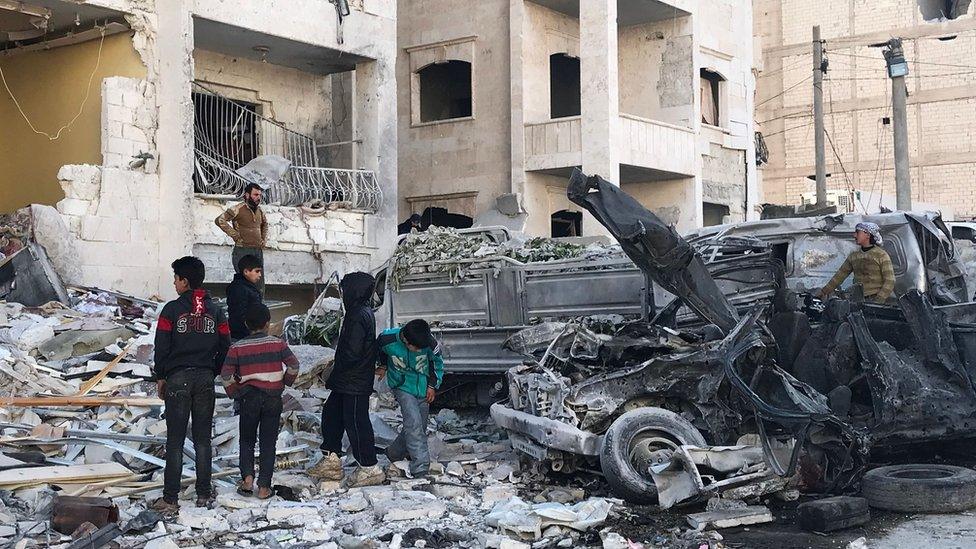
An explosion in the centre of Idlib city on Sunday night left at least 28 people dead
Warplanes had also carried out several raids around the Abu al-Zuhour base, as well as on the Khan Sheikoun, al-Tamanaa, Maarat al-Numan and Jarjanaz areas, it said. Air strikes across Idlib on Sunday reportedly left at least 21 people dead.
The UN High Commissioner for Human Rights, Zeid Raad Al Hussein condemned the upsurge in civilian casualties in Idlib, external, as well as in a besieged rebel enclave outside the capital, Damascus, called the Eastern Ghouta, where at least 85 civilians have been killed and 183 injured since 31 December.
Fifteen-year-old Muhammed lives in the rebel-held area of Eastern Ghouta
Earlier, Turkey's foreign minister told Anadolu news agency that the advances by Syrian government forces could not have taken place without Russian and Iranian support, external, and demanded they "fulfil their responsibilities".
Mevlut Cavusoglu warned that the Idlib offensive was endangering efforts to broker a political solution to the conflict, including a planned "national dialogue" congress in the Russian resort city of Sochi later this month.
"It's not just a simple air strike. The regime is moving in Idlib, the intent here is different," he said. "If the aim here is to make some unwilling opposition groups go to Sochi, it will backfire."
- Published8 January 2018
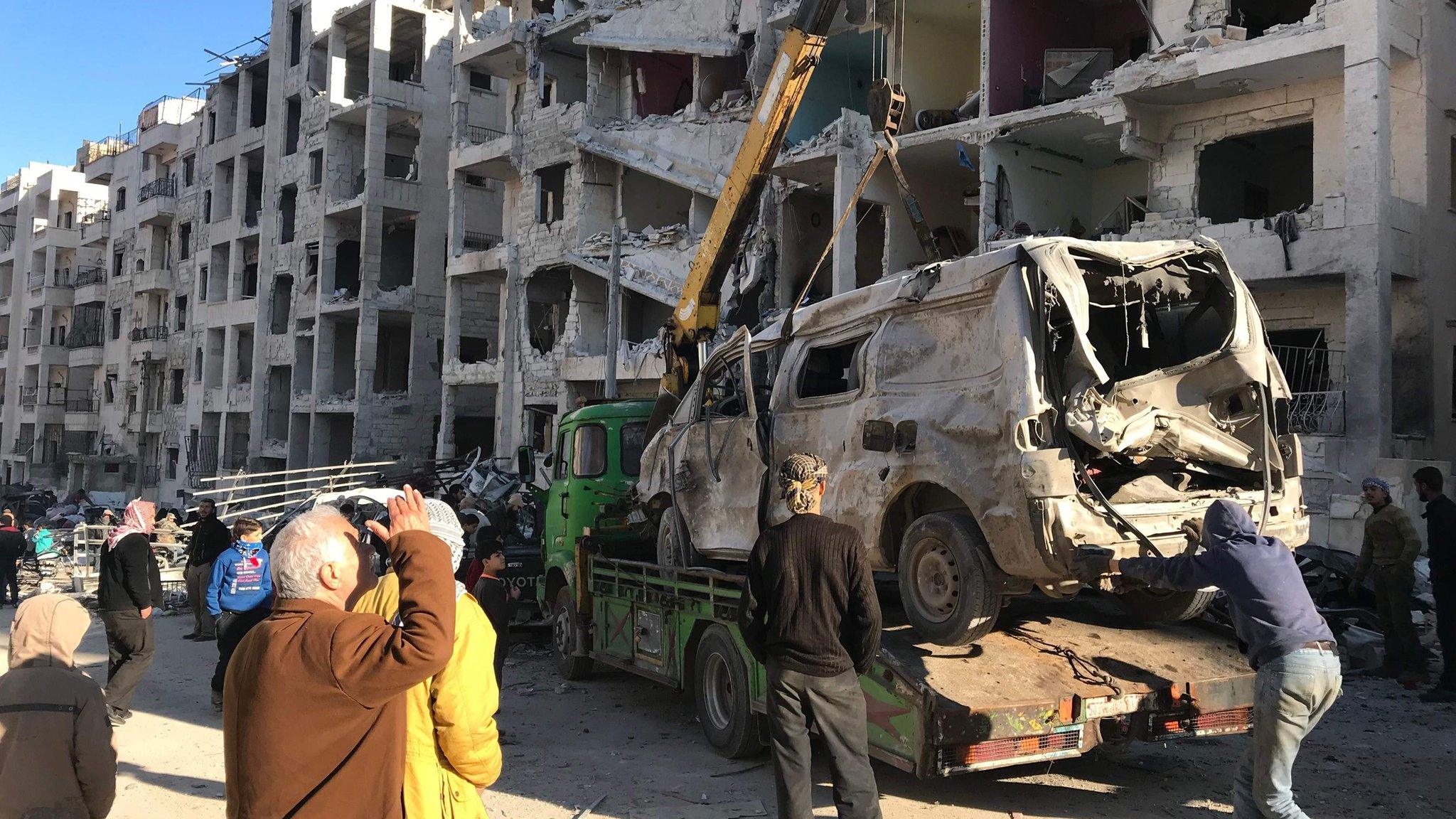
- Published7 January 2018
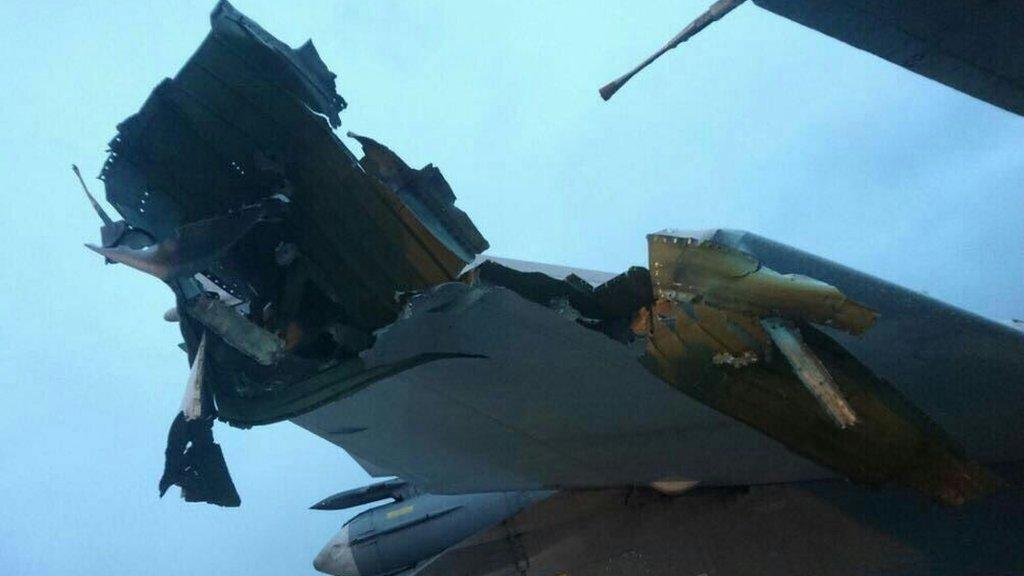
- Published6 January 2018
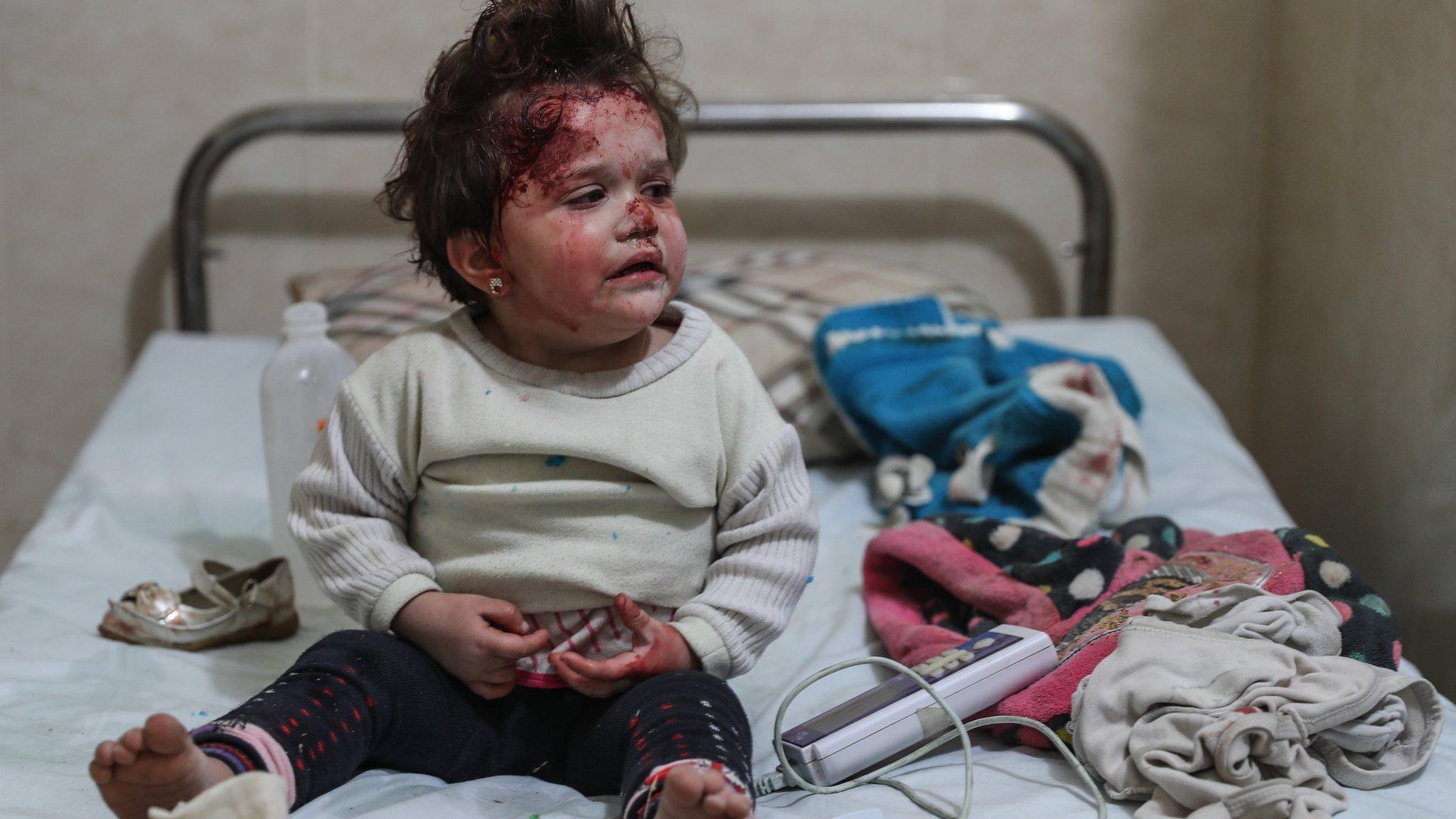
- Published4 January 2018
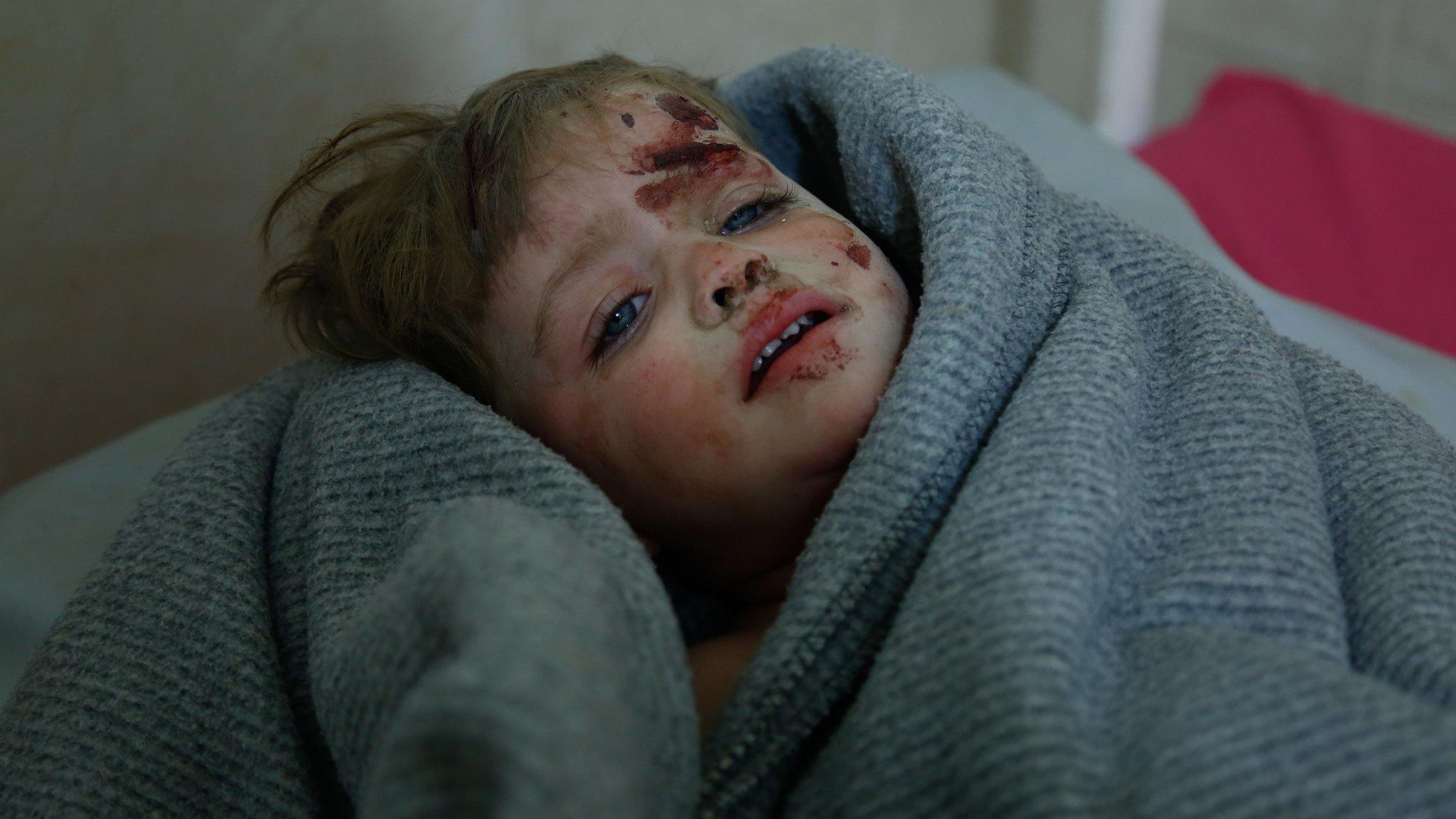
- Published29 December 2017
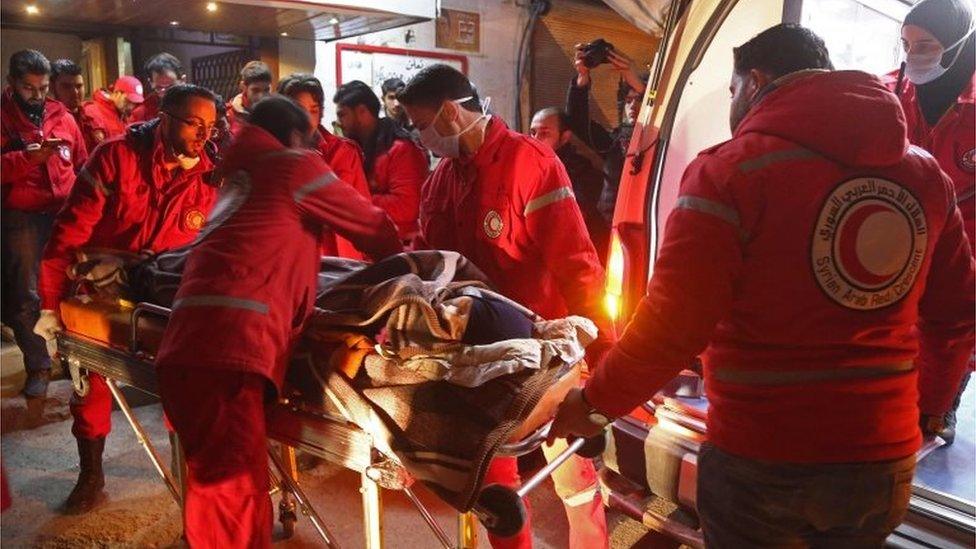
- Published27 December 2017
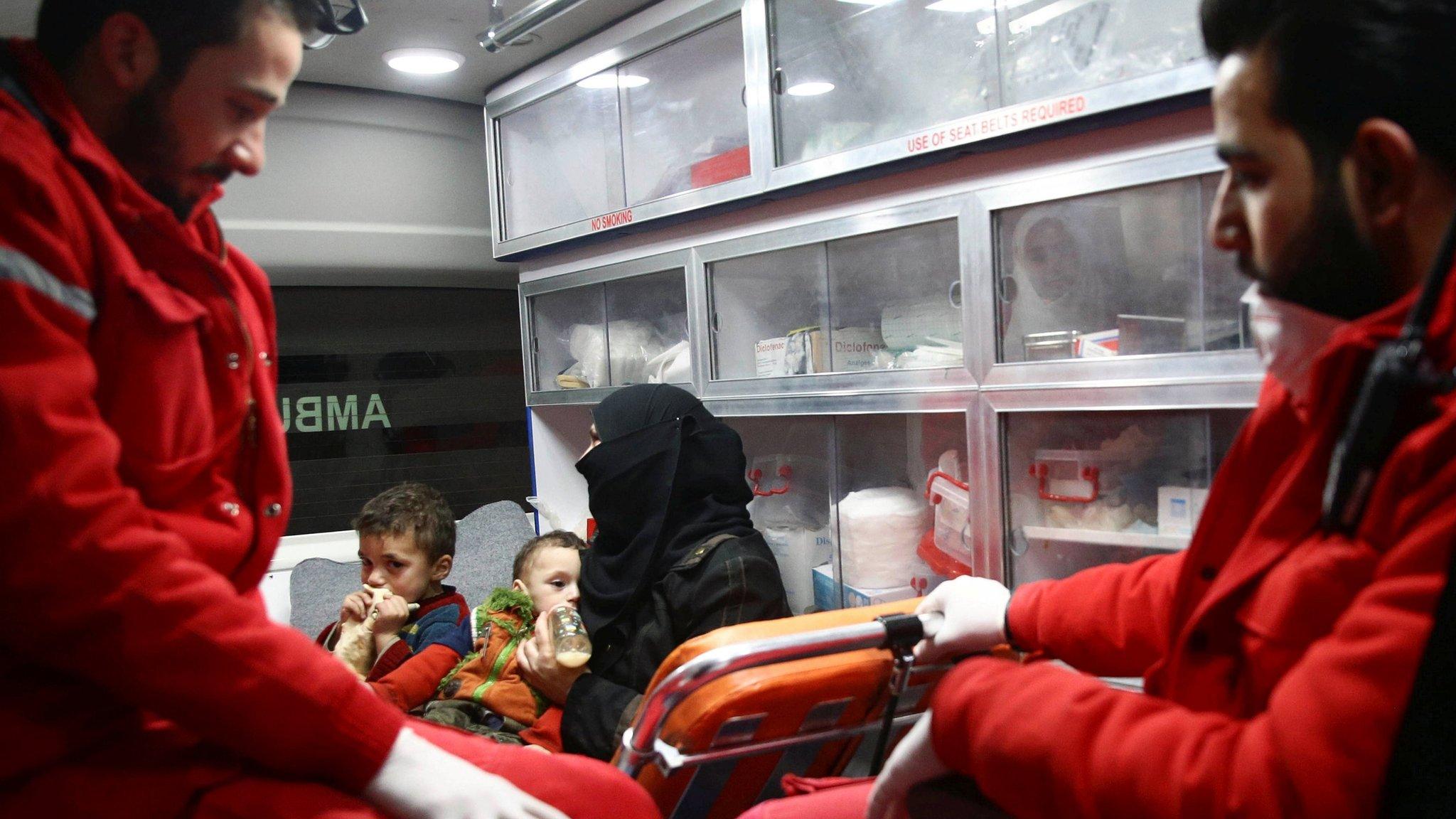
- Published21 December 2017
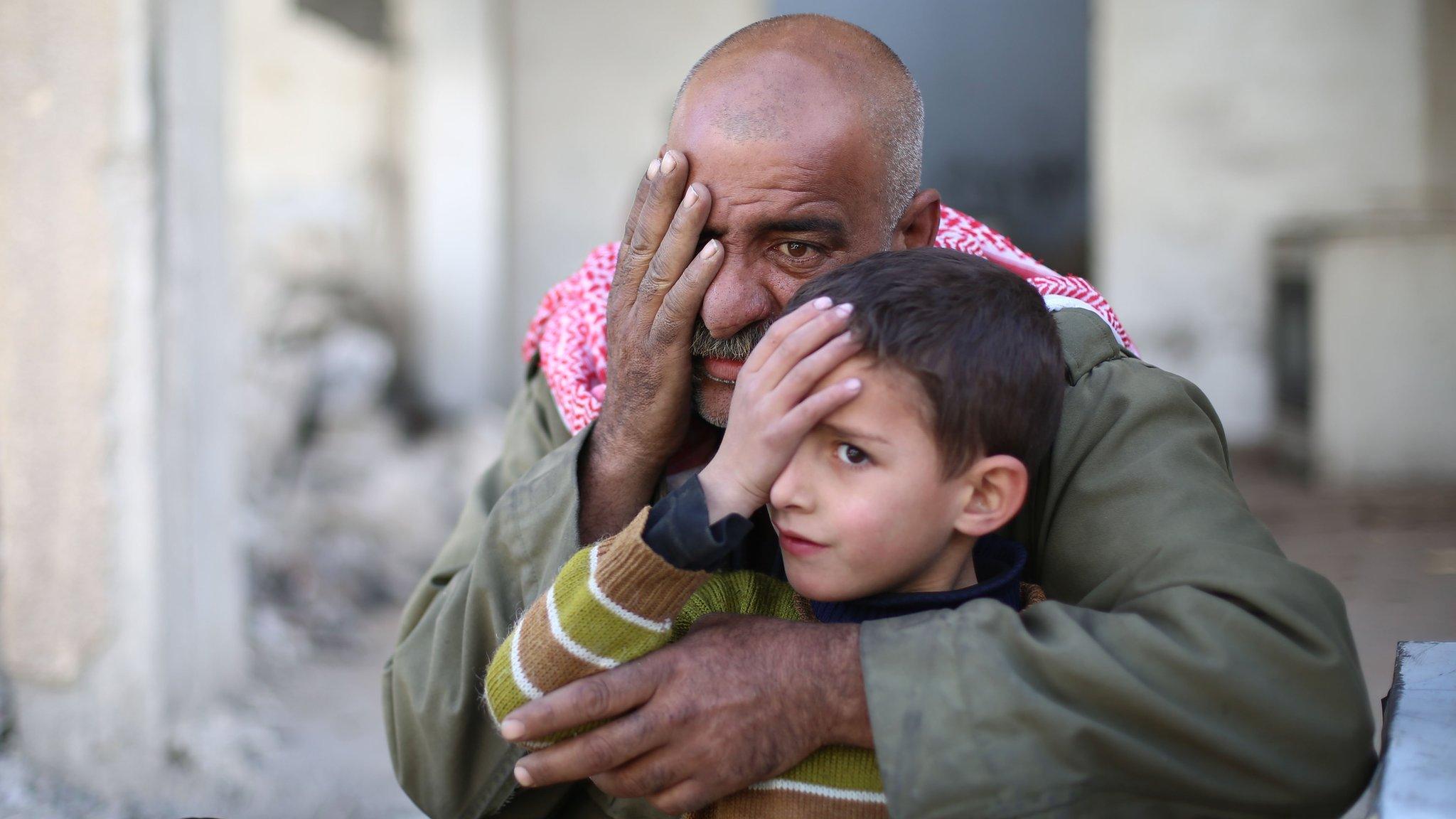
- Published20 December 2017
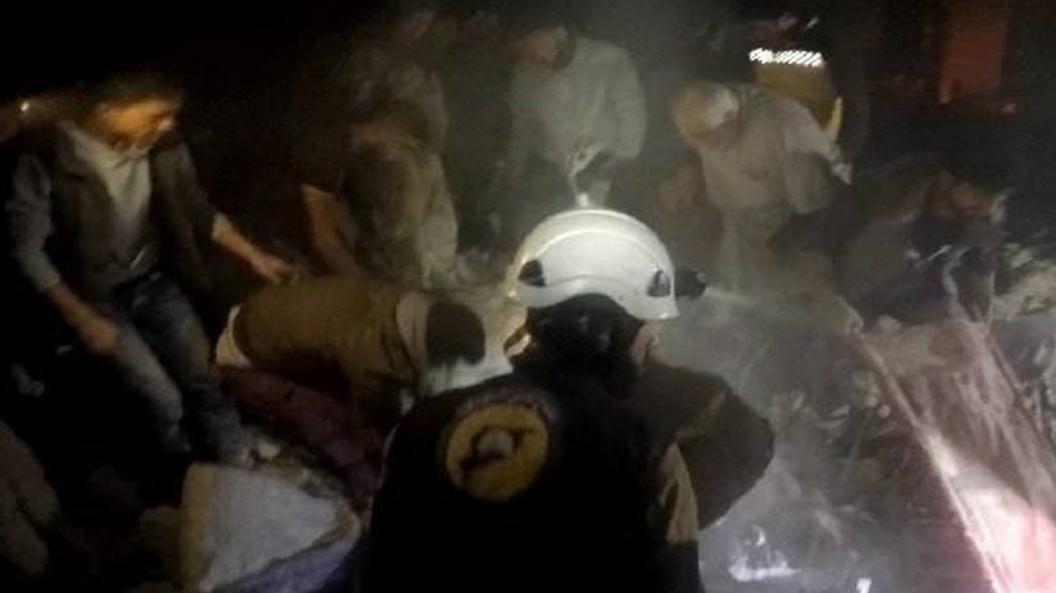
- Published2 May 2023
